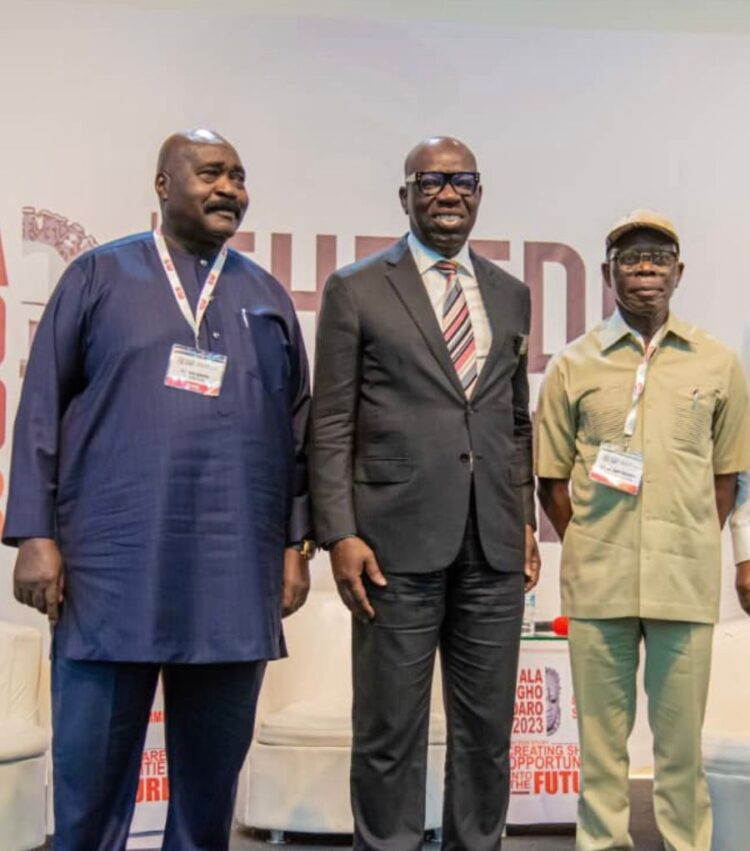
IN the intricate tapestry of Nigerian politics, three figures emerge as the linchpins of power, each leaving an indelible mark on the political landscape. United not by virtue but rather by the common thread of corruption, these three figures —Senator Adams Oshiomhole, Mr. Godwin Obaseki and Chief Lucky Igbinedion—represent the spectrum of influence in Nigerian governance, embodying the archetypes of the good, the bad, the ugly and the purported “evil genius.”
The Good: Senator Adams Oshiomhole
Once celebrated as a beacon of hope, Comrade Oshiomhole, a former labor leader, entered politics with promises of positive change. His tenure as Governor of Edo State was marked by infrastructural development and social initiatives. However, as time unfolded, allegations of corruption cast shadows over his legacy, raising questions about the true nature of his governance.
The Bad: Mr. Godwin Obaseki
In the aftermath of Oshiomhole’s regime, Godwin Obaseki assumed the mantle of leadership with pledges to clean the political stables. However, the narrative took a twist as he faced accusations of financial mismanagement and political maneuvering. The once-promising leader found himself entangled in the web of corruption, tarnishing the hopes vested in his administration.
The Ugly: Chief Lucky Igbinedion
A former governor of Edo State, Chief Lucky Igbinedion’s legacy is a cautionary tale. While in power, his administration faced numerous allegations of embezzlement and financial malfeasance. The stain of corruption left an enduring mark on Igbinedion’s political career, serving as a stark reminder of the pitfalls that power can present.
The Evil Genius: Unraveling the complexity
The term “evil genius” has often been associated with political strategists who wield power with Machiavellian finesse. In this trio, it signifies a deeper complexity—a nuanced interplay of political maneuvering and alleged corrupt practices. Whether perceived as masterminds or victims of circumstance, the trio collectively symbolizes the darker shades within the political spectrum.
In the narrative of Senator Adams Oshiomhole, Mr. Godwin Obaseki and Chief Lucky Igbinedion, corruption serves as the common denominator, weaving together their stories in the intricate fabric of Nigerian politics. As the nation grapples with issues of governance, transparency, and accountability, the legacy of these three figures serves as a mirror reflecting the challenges and complexities inherent in the pursuit of political power. The tale of the good, the bad, the ugly, and the purported evil genius stands as a testament to the multifaceted nature of Nigerian politics and the ongoing struggle for ethical governance.













